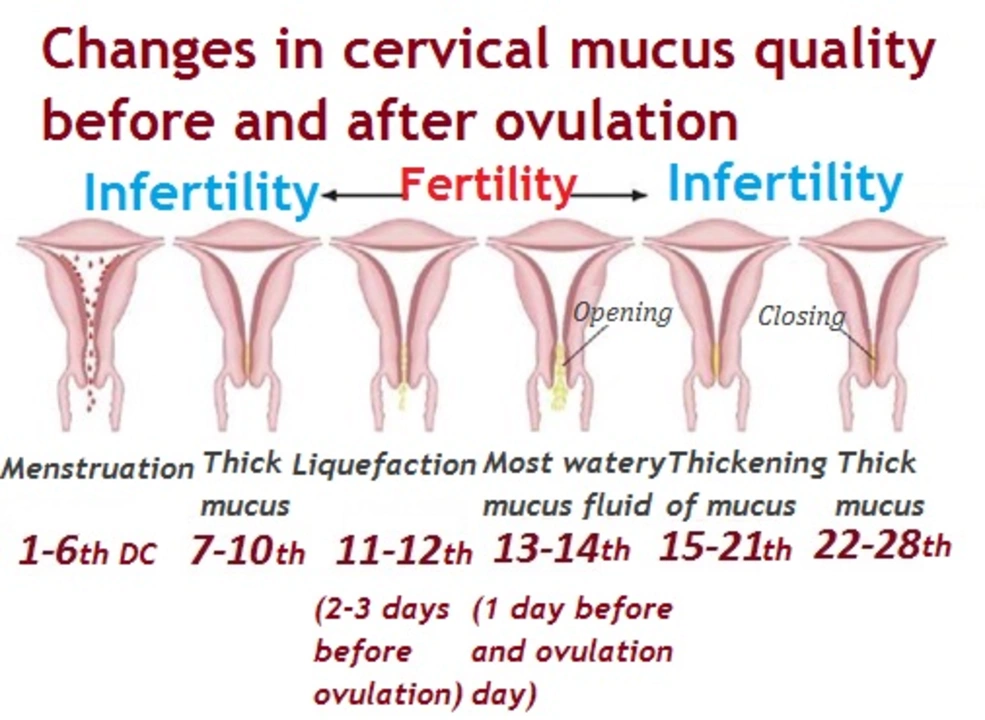Understanding Thyroid Disorders and Their Impact on Ovulation and Menstruation
As a woman, it is essential to be aware of the many factors that can influence our reproductive health. One such factor is thyroid disorders, which can have a significant impact on our ovulation and menstruation. In this article, we will explore the various ways in which thyroid disorders can affect our reproductive system and discuss some of the possible solutions to address these issues. So, let's dive into the different aspects of this important topic.
Introduction to Thyroid Disorders
Before we delve into the effects of thyroid disorders on ovulation and menstruation, it's important to understand what these disorders are and how they occur. The thyroid is a small, butterfly-shaped gland located in the neck, responsible for producing hormones that regulate our metabolism, growth, and development. Thyroid disorders occur when this gland either produces too much or too little of these hormones, leading to conditions such as hyperthyroidism and hypothyroidism.
Both of these conditions can have a significant impact on our overall health, and in particular, our reproductive health. Let's take a closer look at how these thyroid disorders can affect ovulation and menstruation.
Hyperthyroidism: Impact on Ovulation and Menstruation
Hyperthyroidism is a condition in which the thyroid gland produces an excessive amount of hormones, causing an increase in metabolism. This heightened metabolic state can have several effects on a woman's reproductive system.
Firstly, hyperthyroidism can lead to irregular menstrual cycles. When thyroid hormone levels are too high, it can cause the menstrual cycle to become shorter and lighter. This can make it difficult for women to track their ovulation and may lead to difficulties in conceiving.
Secondly, hyperthyroidism can also interfere with ovulation. An excess of thyroid hormones can disrupt the balance of hormones necessary for ovulation to occur, leading to anovulatory cycles, where an egg is not released. This, in turn, can result in infertility.
Hypothyroidism: Impact on Ovulation and Menstruation
On the other hand, hypothyroidism is a condition where the thyroid gland does not produce enough hormones, leading to a slowed metabolism. Just like hyperthyroidism, hypothyroidism can have profound effects on a woman's reproductive health.
Women with hypothyroidism may experience longer and heavier menstrual periods. The lack of thyroid hormones can interfere with the body's ability to shed the uterine lining, resulting in prolonged and heavier bleeding during menstruation.
Furthermore, hypothyroidism can also affect ovulation. Low levels of thyroid hormones can disrupt the hormonal balance required for ovulation, leading to anovulatory cycles and potential infertility.
Thyroid Autoimmune Disorders and Their Effects on Reproductive Health
Autoimmune thyroid disorders, such as Hashimoto's thyroiditis and Graves' disease, are conditions where the immune system mistakenly attacks the thyroid gland. These disorders can cause either hypothyroidism or hyperthyroidism, depending on the specific condition.
Both Hashimoto's and Graves' disease can have a negative impact on a woman's reproductive health. As previously discussed, the resulting hormonal imbalances can lead to irregular menstrual cycles, anovulatory cycles, and difficulties in conceiving.
Diagnosis and Treatment of Thyroid Disorders
If you suspect that you may have a thyroid disorder, it is essential to consult with your healthcare provider. A thorough evaluation and blood tests can help determine if you have a thyroid disorder and guide the appropriate treatment.
Treatment for thyroid disorders typically involves medication to help regulate hormone levels. In some cases, surgery or radioactive iodine therapy may be necessary. Once hormone levels are stabilized and maintained with appropriate treatment, many women with thyroid disorders can experience improvements in their menstrual cycles and ovulation.
Thyroid Disorders and Pregnancy
It is crucial for women with thyroid disorders to manage their condition effectively during pregnancy. Both hyperthyroidism and hypothyroidism can lead to complications during pregnancy, such as premature birth, low birth weight, and miscarriage.
Working closely with your healthcare provider and monitoring thyroid hormone levels throughout pregnancy can help minimize these risks and ensure a healthy pregnancy for both mother and baby.
Managing Thyroid Disorders to Improve Reproductive Health
Living with a thyroid disorder can be challenging, but it is essential to manage your condition to maintain your overall health and reproductive well-being. Regular check-ups with your healthcare provider, following the prescribed treatment plan, and adopting a healthy lifestyle can help manage your thyroid disorder and reduce its impact on your ovulation and menstruation.
In addition to medical treatment, some lifestyle changes can also help support a healthy thyroid function. These may include a balanced diet, regular exercise, and stress management techniques.
Conclusion
Thyroid disorders can have a significant impact on a woman's reproductive health, affecting ovulation and menstruation. Understanding the connection between thyroid disorders and reproductive health is essential for women seeking to maintain their overall well-being and fertility. By identifying and managing thyroid disorders, women can mitigate their effects on ovulation and menstruation, improving their chances of a healthy pregnancy and a healthy life.


Author
Mike Clayton
As a pharmaceutical expert, I am passionate about researching and developing new medications to improve people's lives. With my extensive knowledge in the field, I enjoy writing articles and sharing insights on various diseases and their treatments. My goal is to educate the public on the importance of understanding the medications they take and how they can contribute to their overall well-being. I am constantly striving to stay up-to-date with the latest advancements in pharmaceuticals and share that knowledge with others. Through my writing, I hope to bridge the gap between science and the general public, making complex topics more accessible and easy to understand.